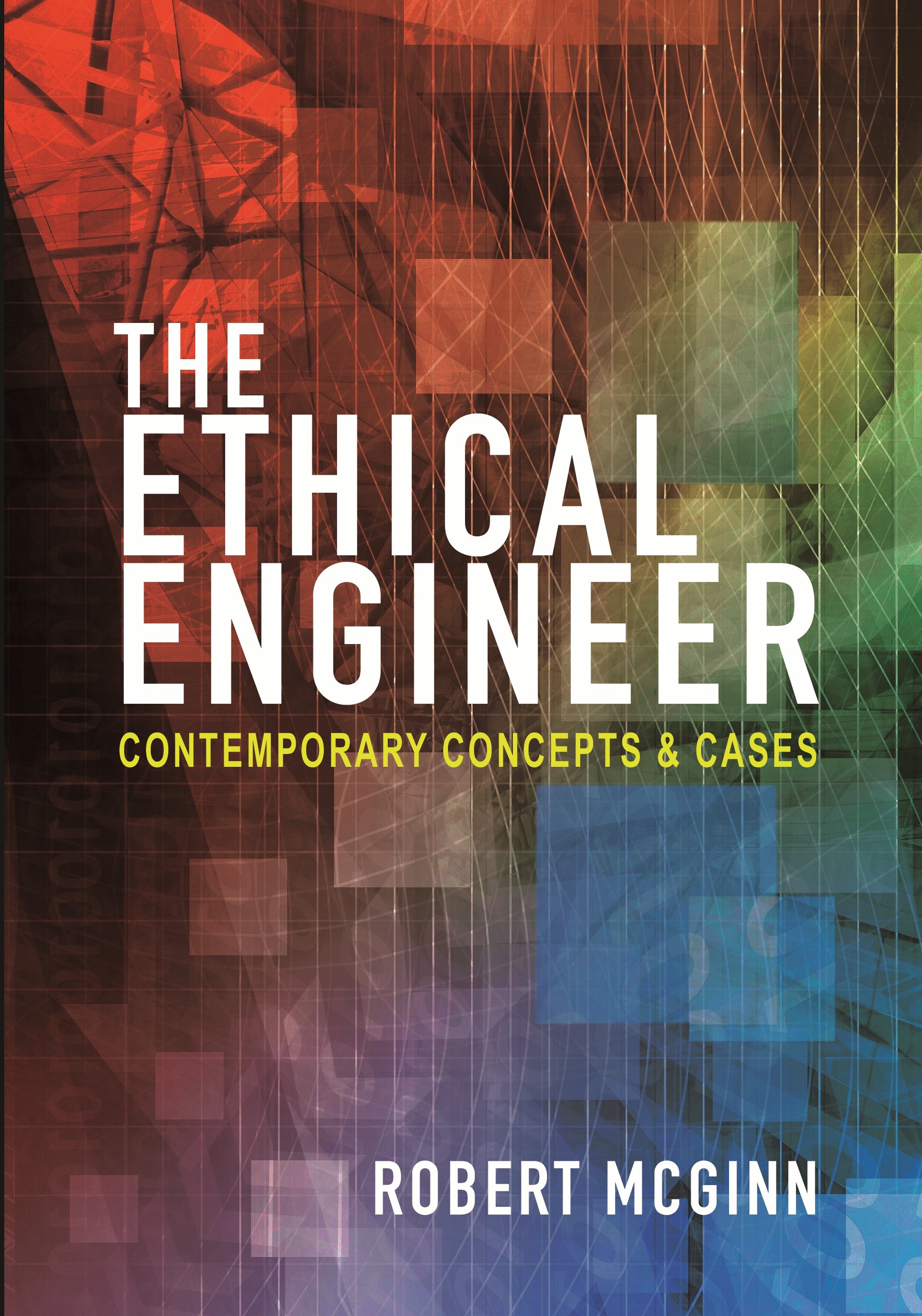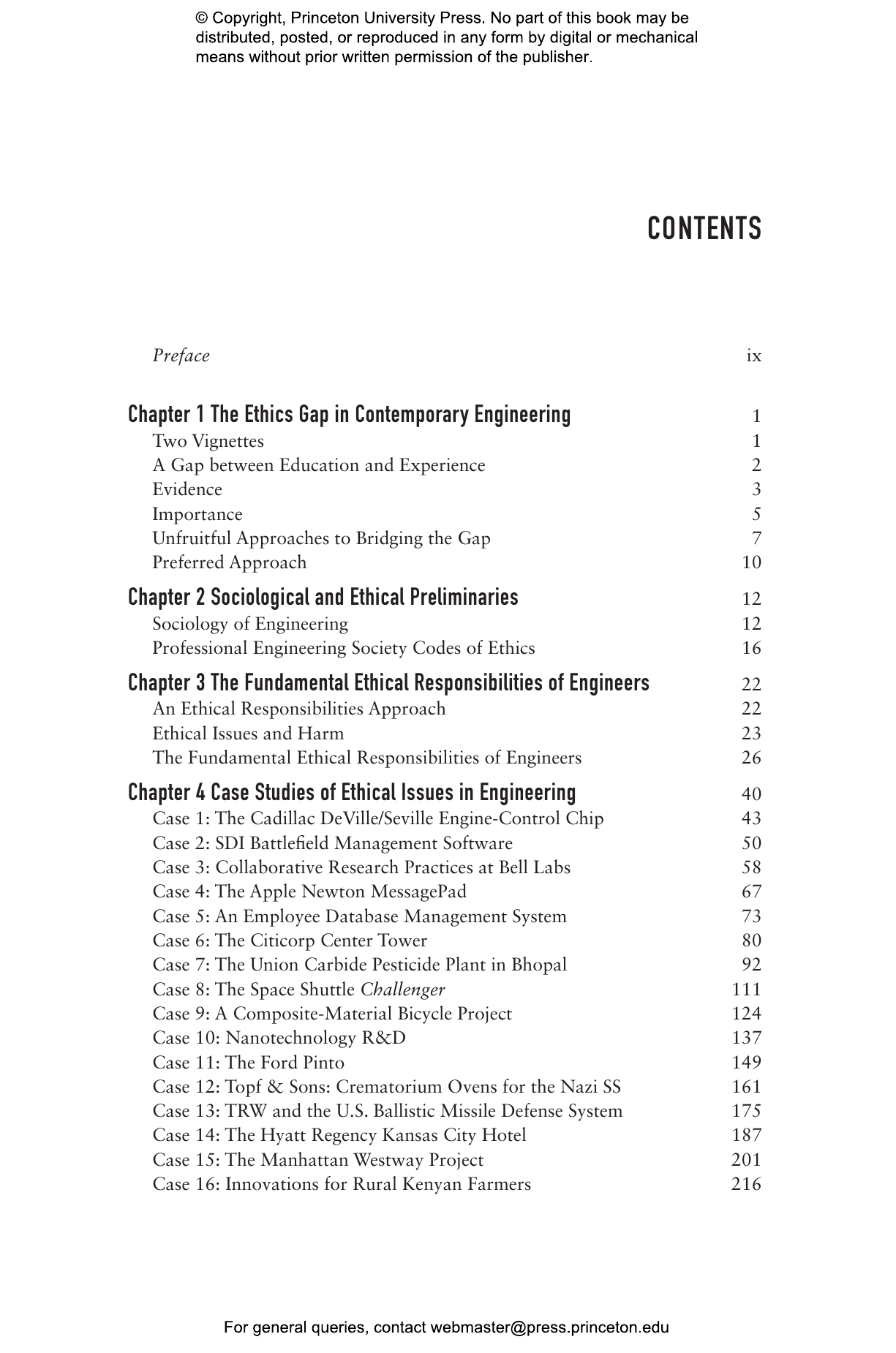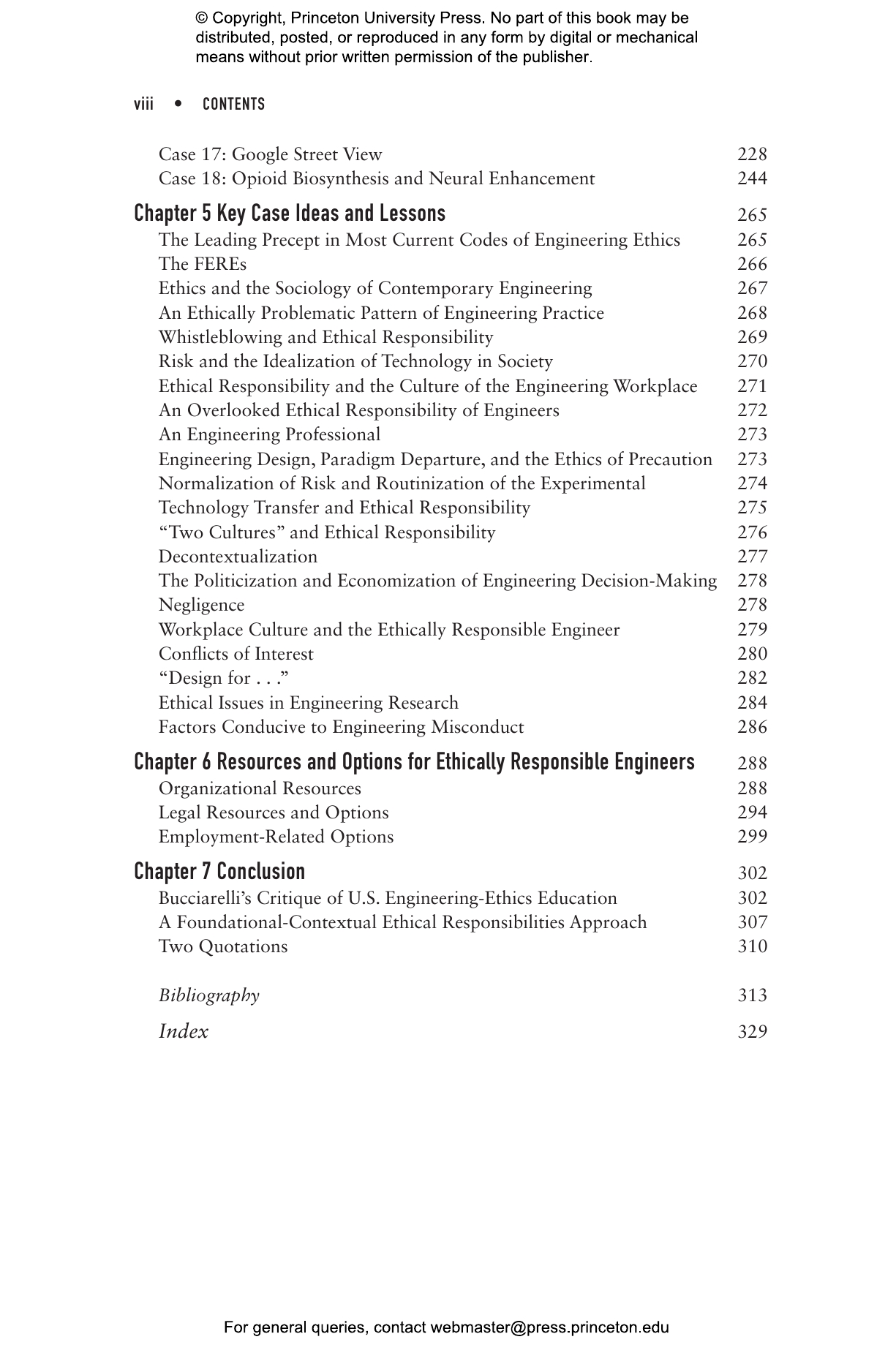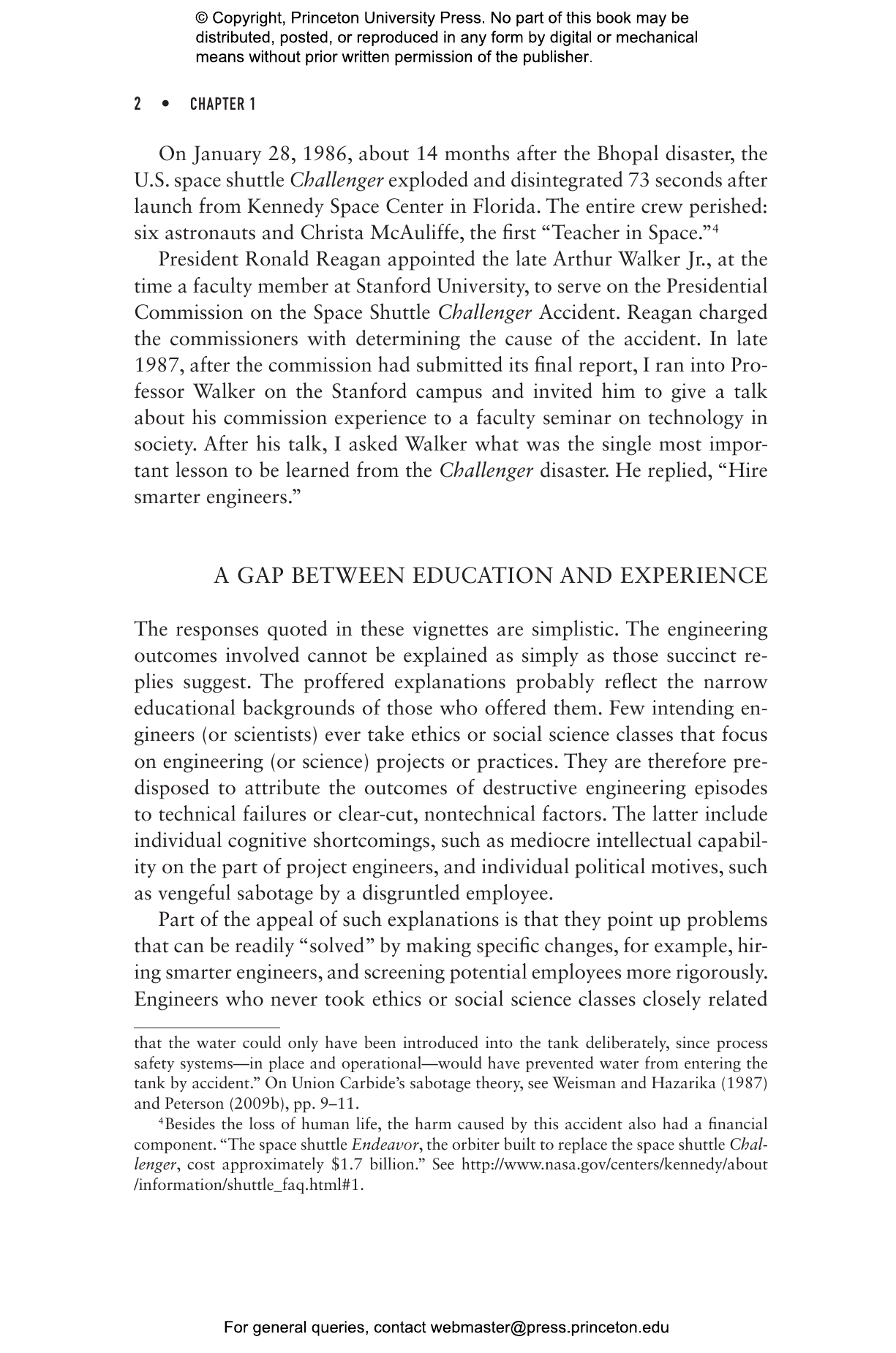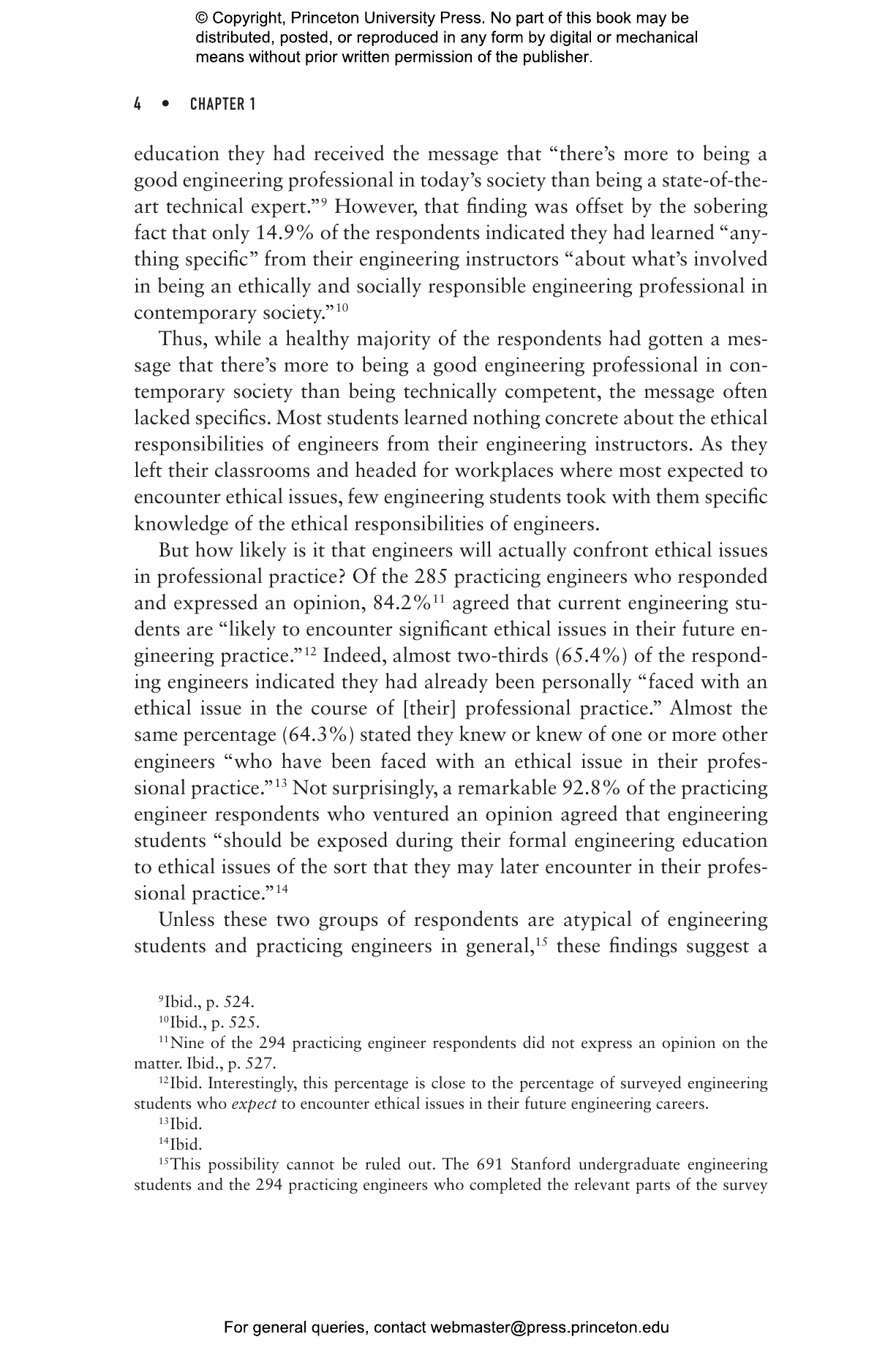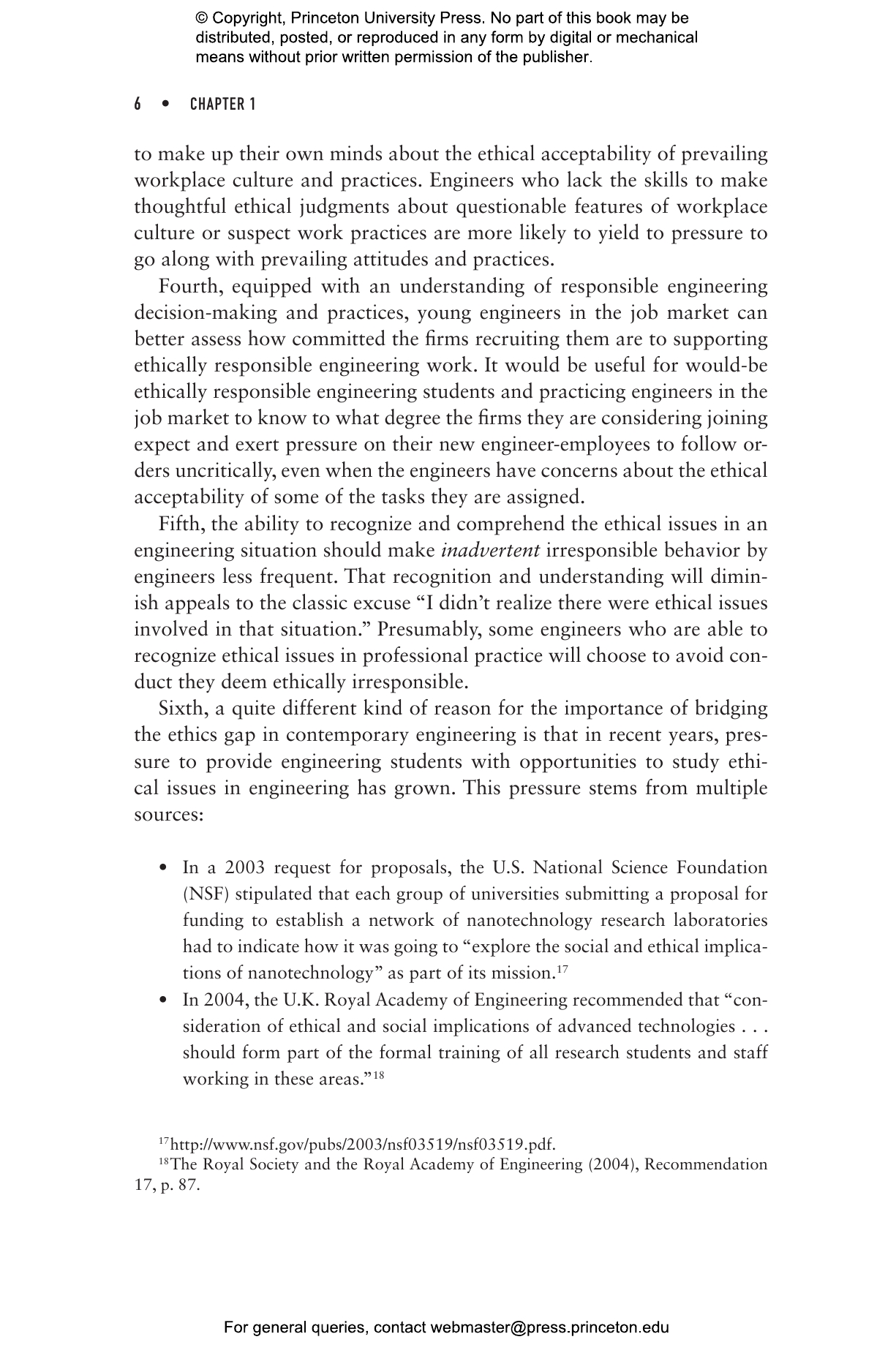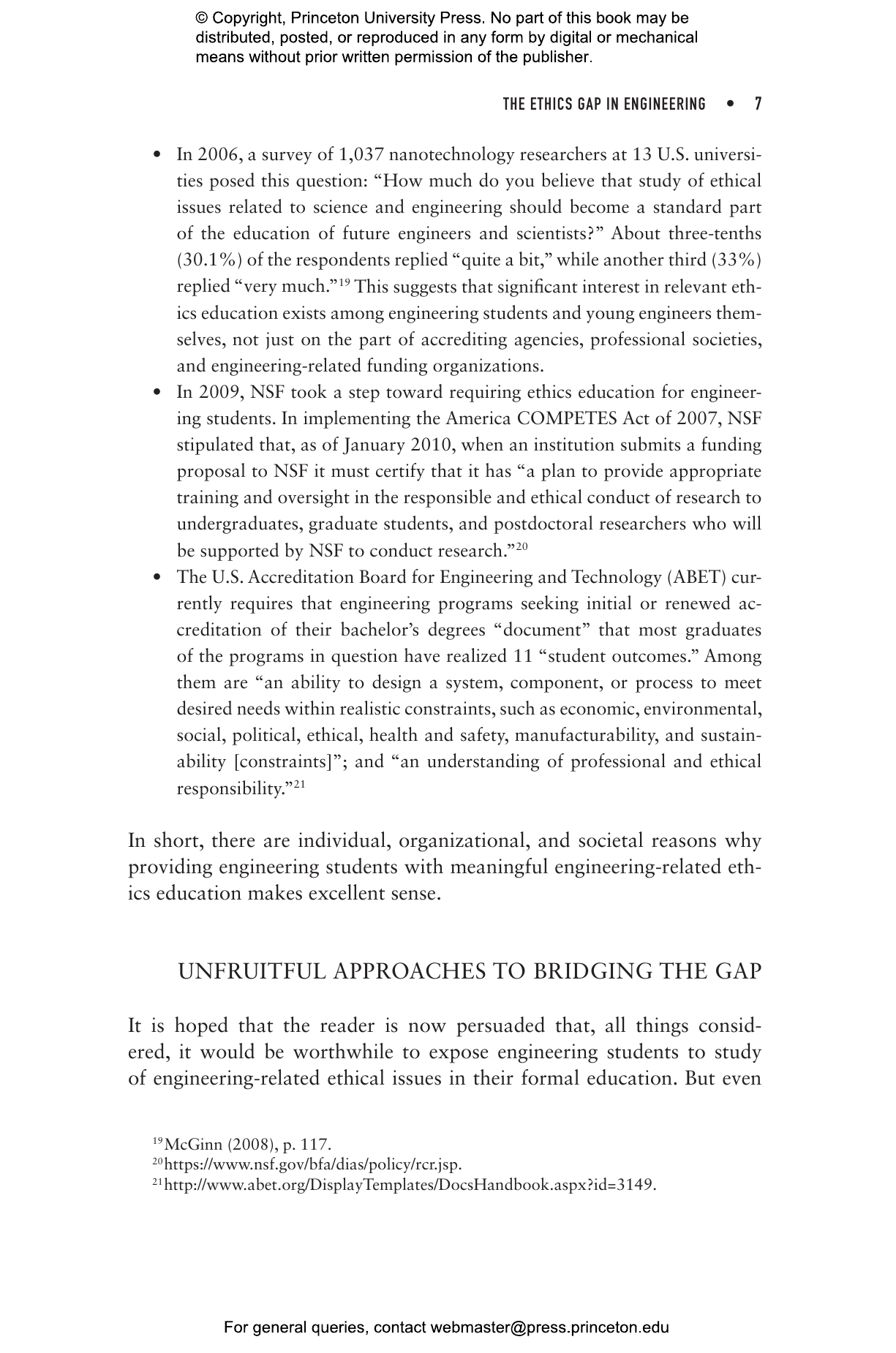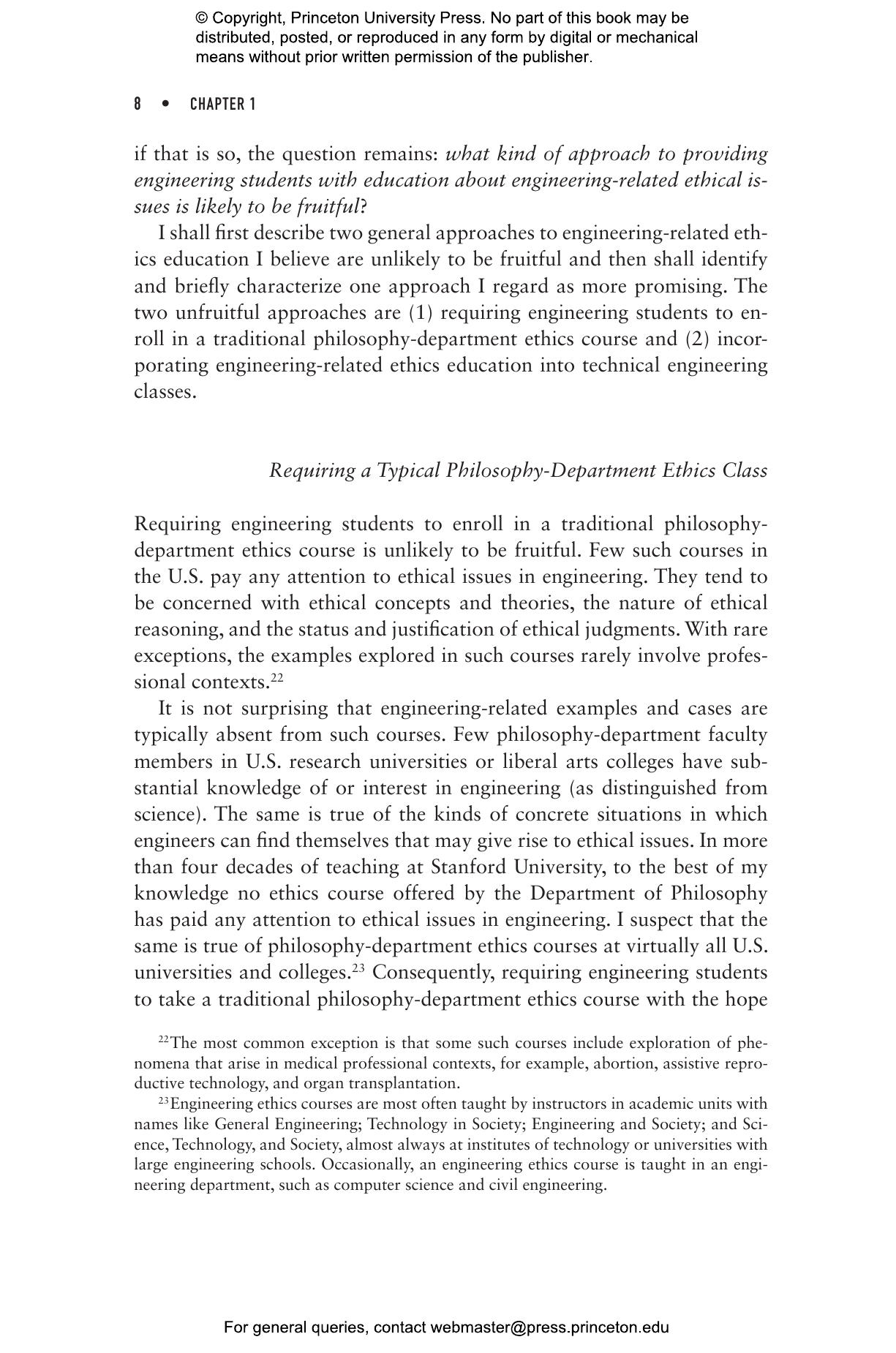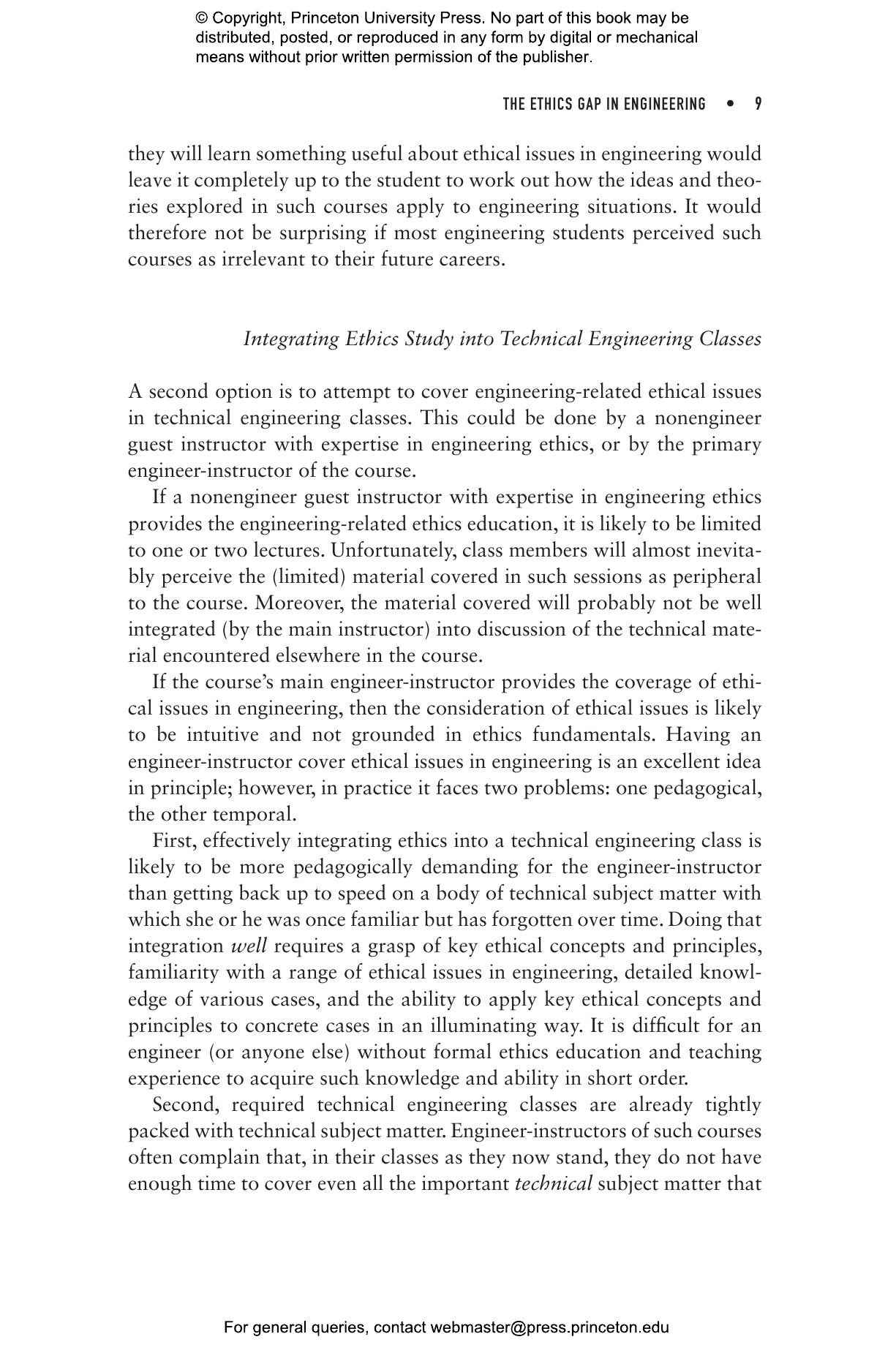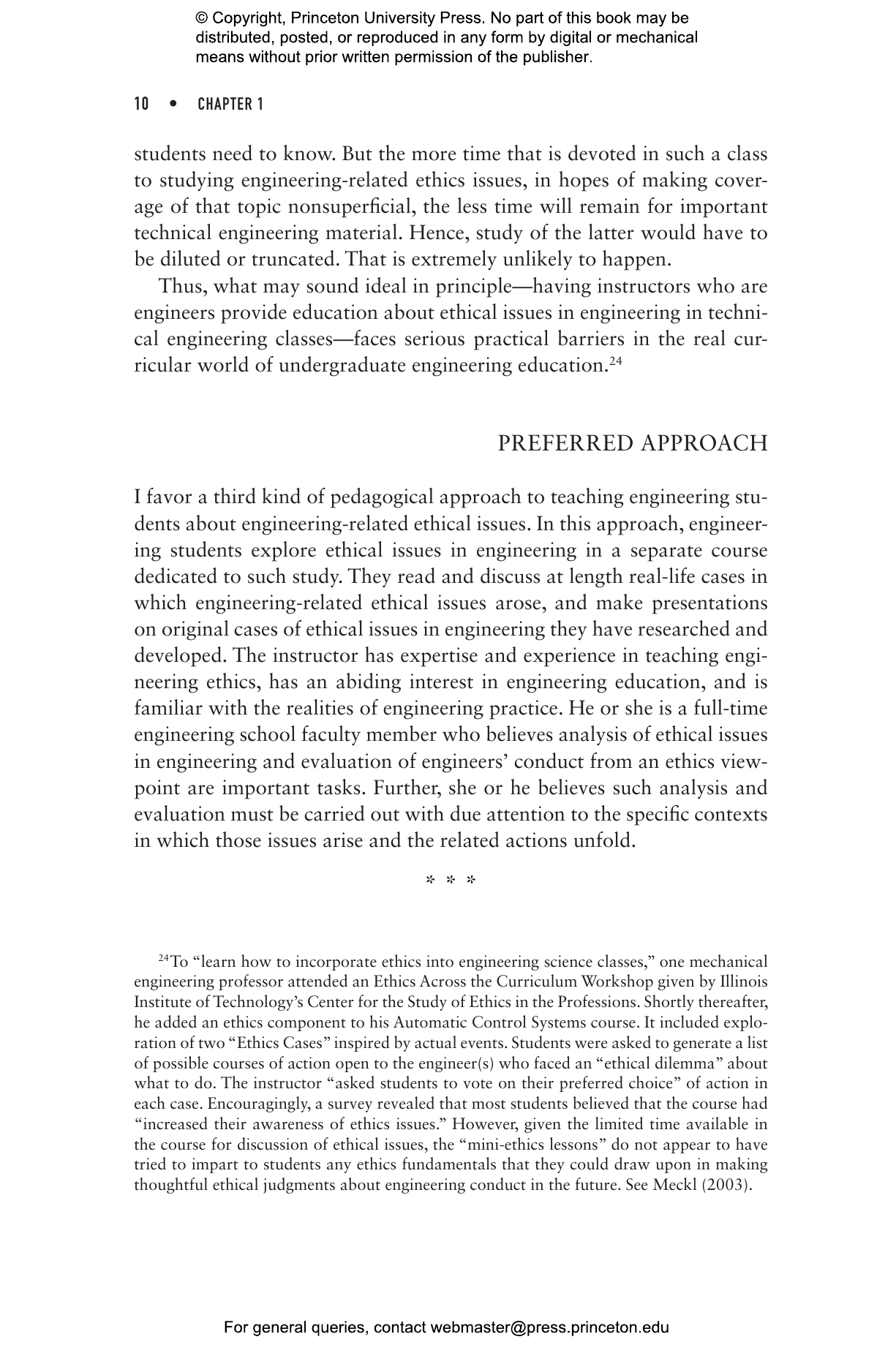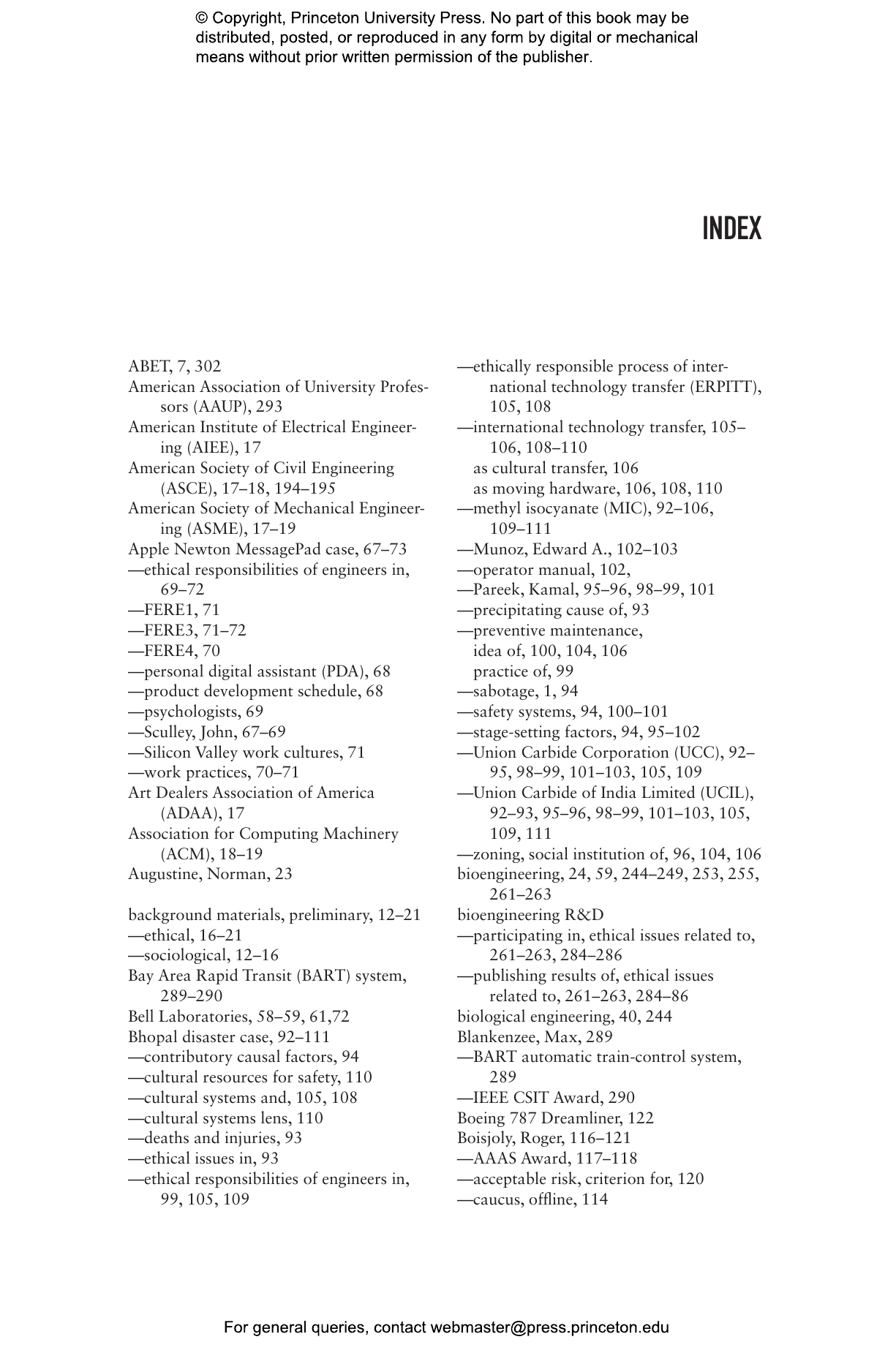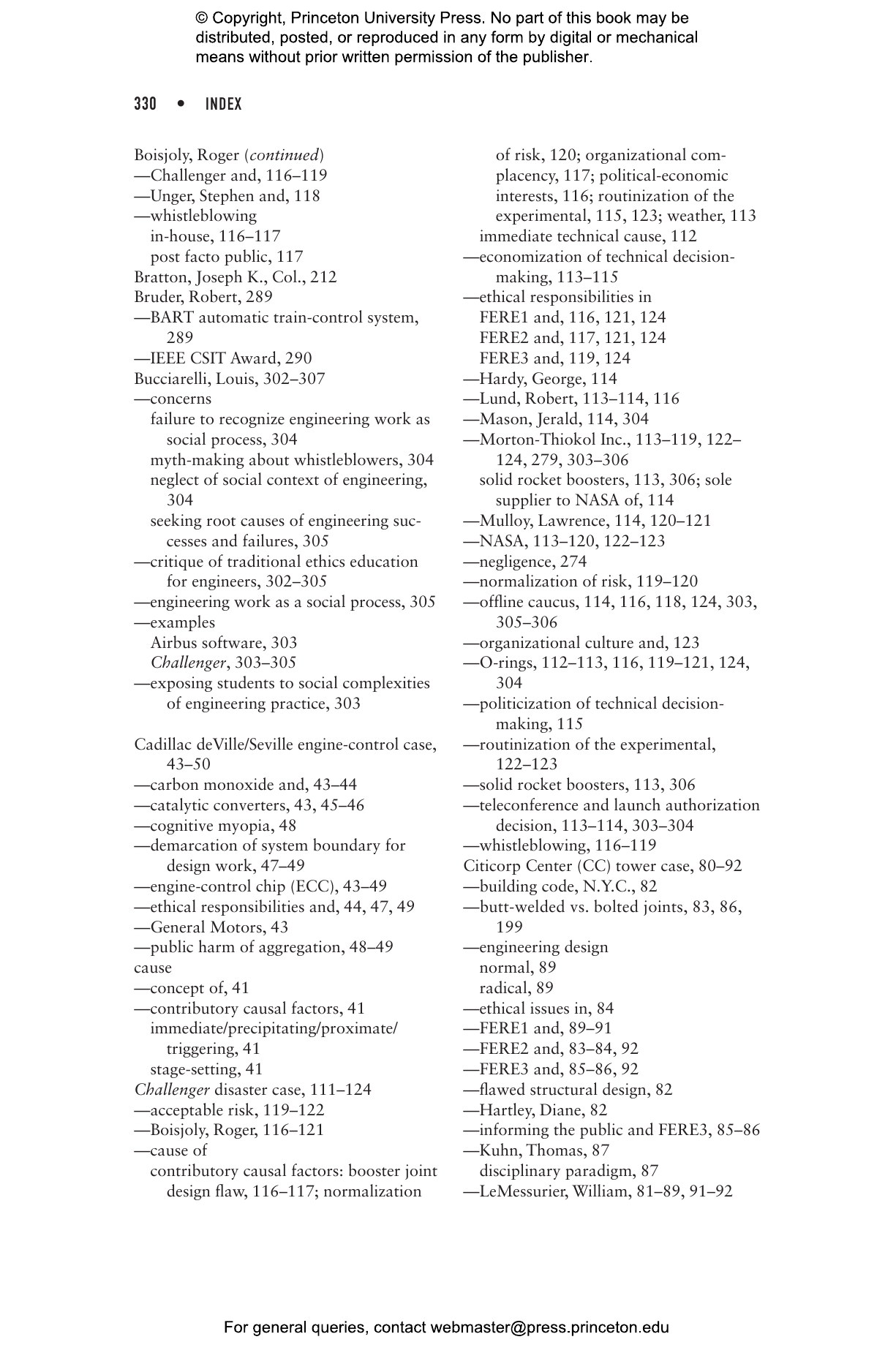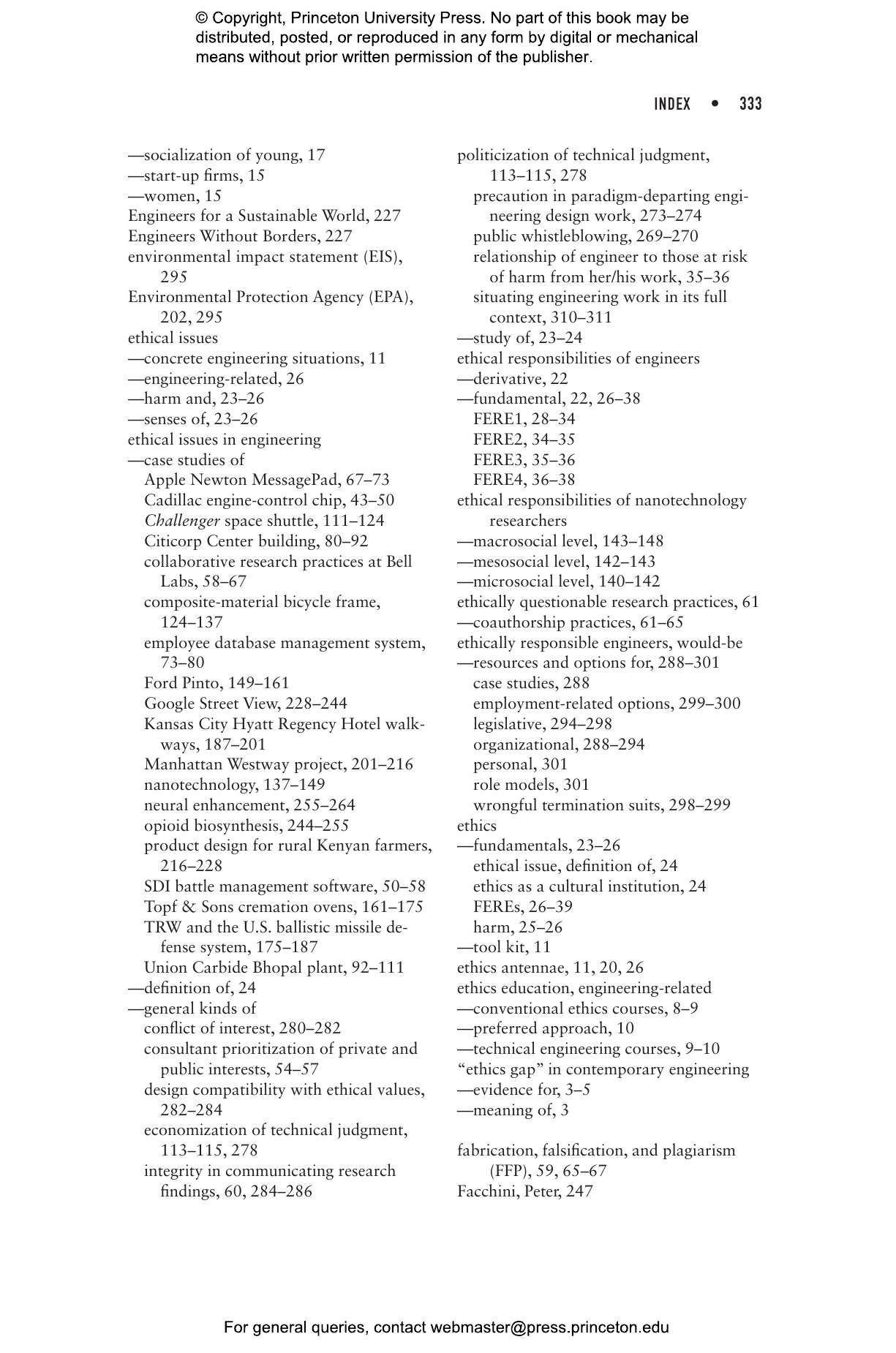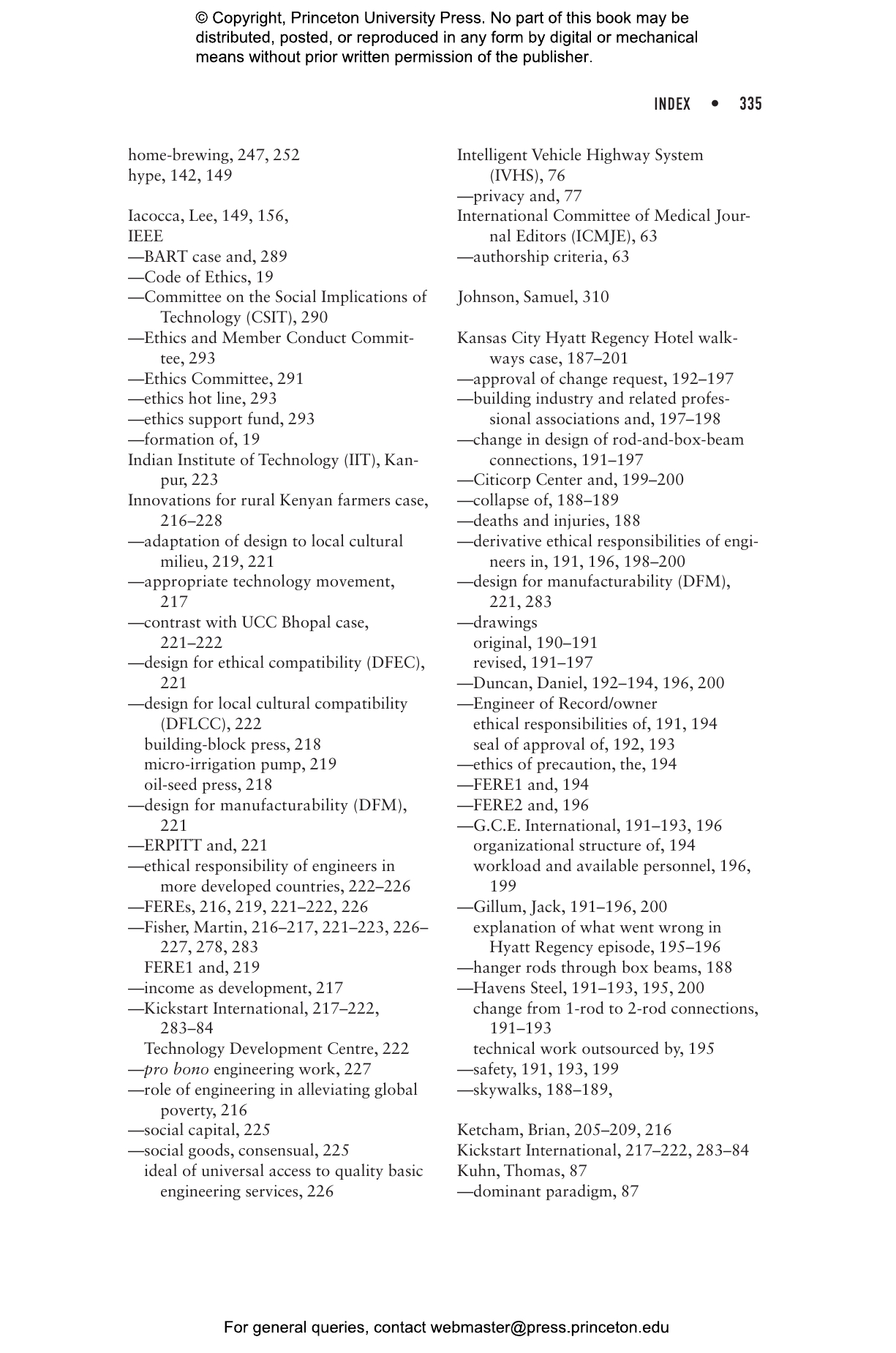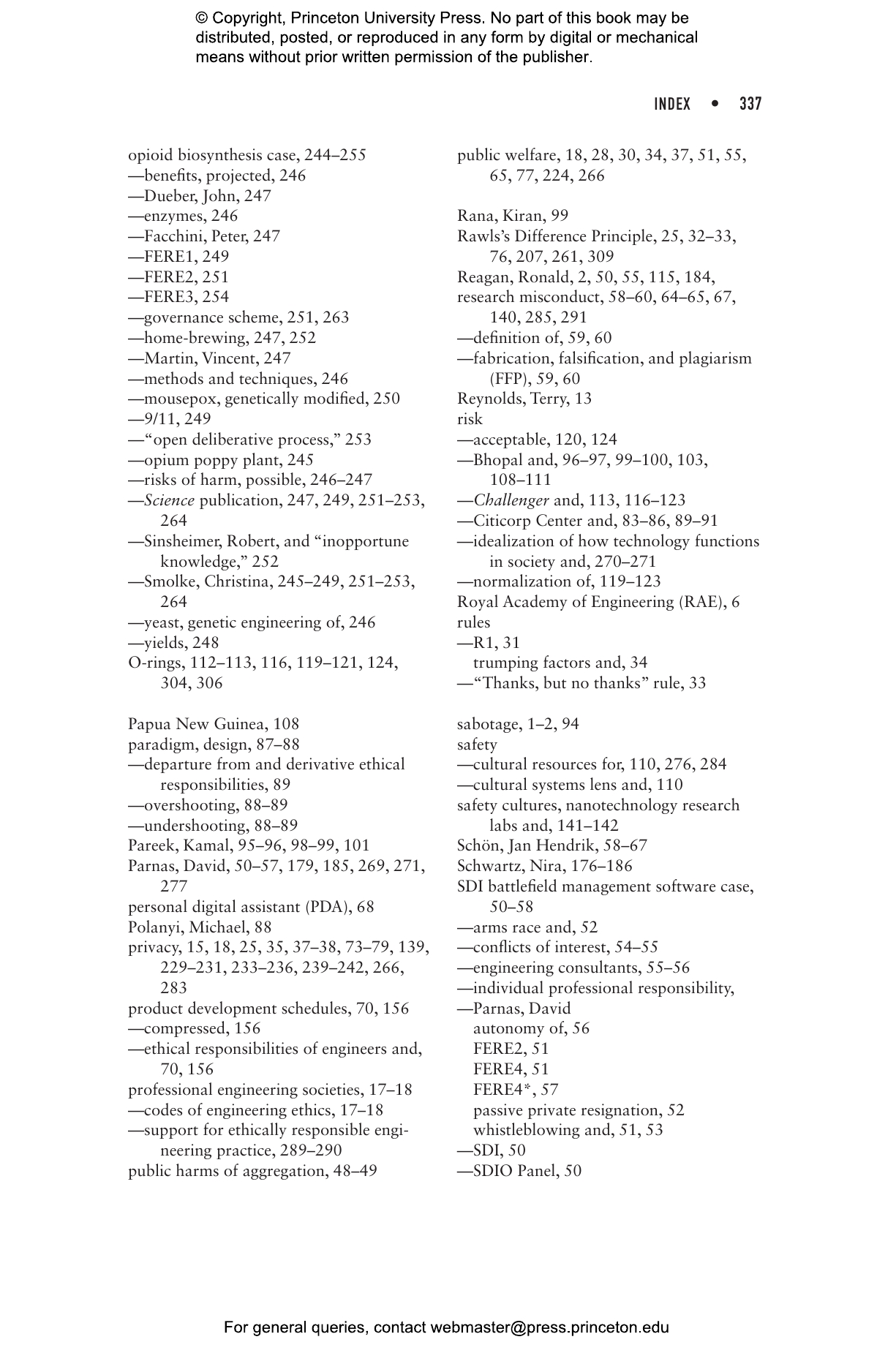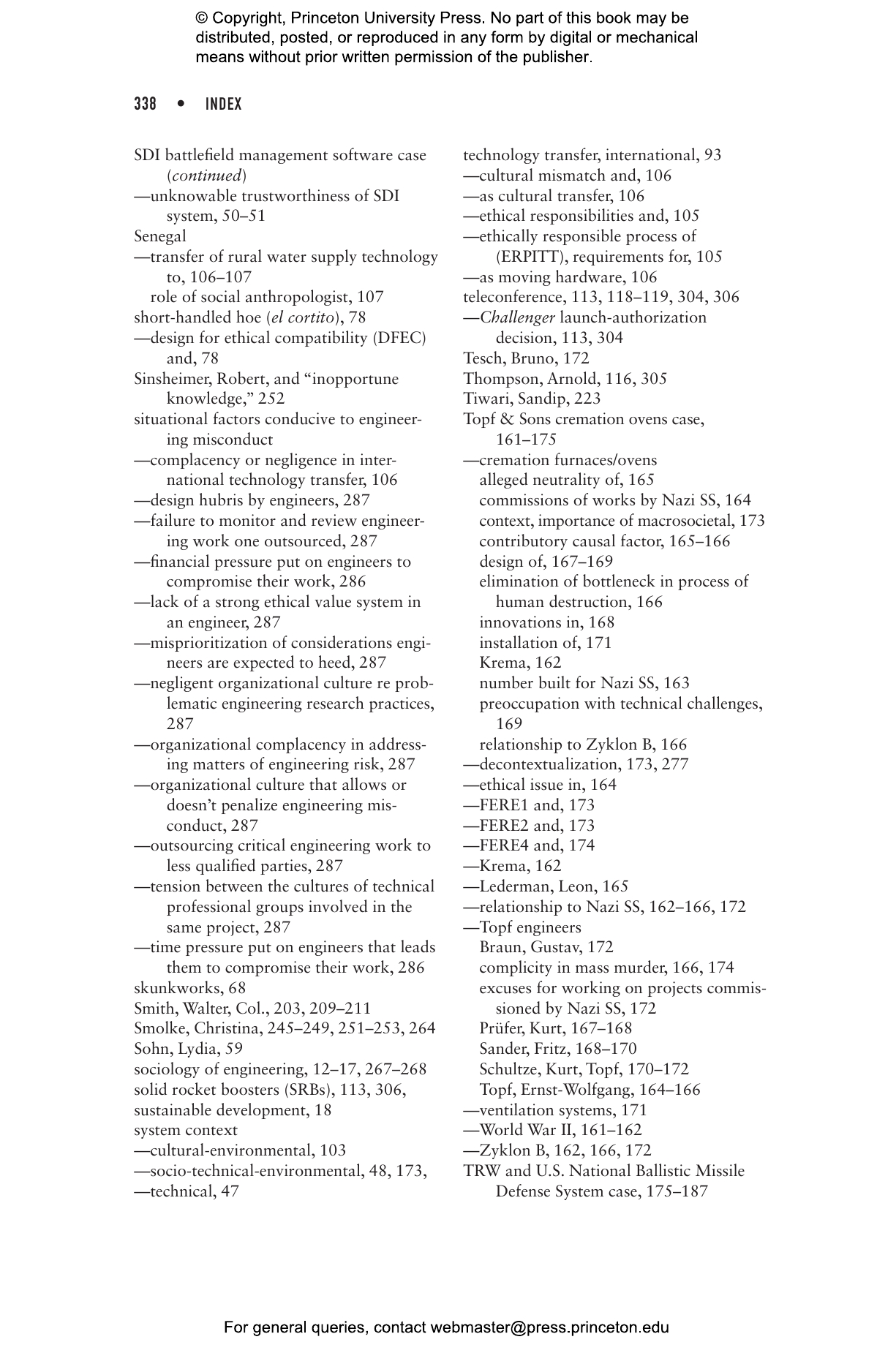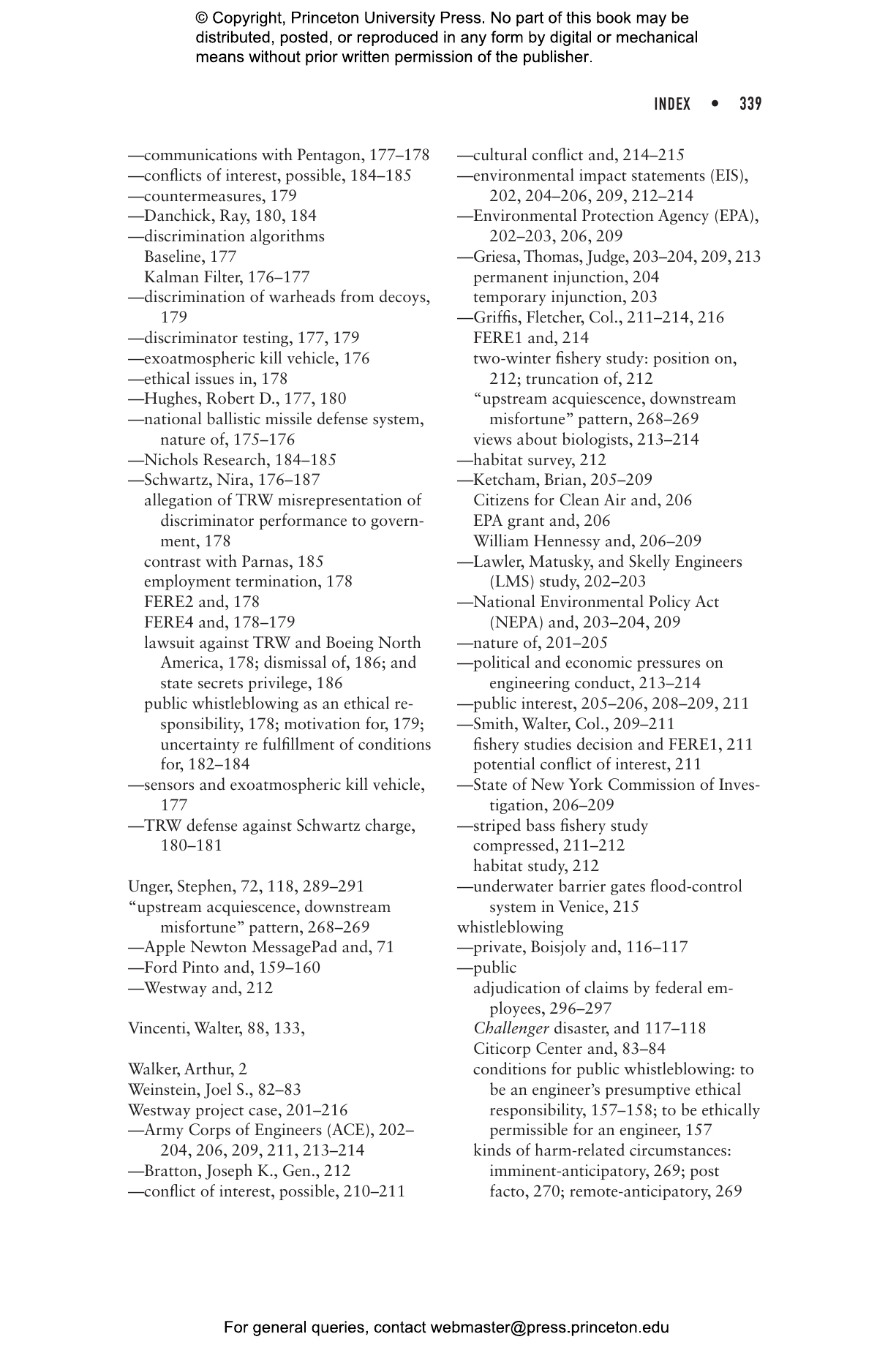The Ethical Engineer explores ethical issues that arise in engineering practice, from technology transfer to privacy protection to whistle-blowing. Presenting key ethics concepts and real-life examples of engineering work, Robert McGinn illuminates the ethical dimension of engineering practice and helps students and professionals determine engineers’ context-specific ethical responsibilities.
McGinn highlights the “ethics gap” in contemporary engineering—the disconnect between the meager exposure to ethical issues in engineering education and the ethical challenges frequently faced by engineers. He elaborates four “fundamental ethical responsibilities of engineers” (FEREs) and uses them to shed light on the ethical dimensions of diverse case studies, including ones from emerging engineering fields. The cases range from the Union Carbide pesticide plant disaster in India to the Google Street View project. After examining the extent to which the actions of engineers in the cases align with the FEREs, McGinn recapitulates key ideas used in analyzing the cases and spells out the main lessons they suggest. He identifies technical, social, and personal factors that induce or press engineers to engage in misconduct and discusses organizational, legal, and individual resources available to those interested in ethically responsible engineering practice.
Combining probing analysis and nuanced ethical evaluation of engineering conduct in its social and technical contexts, The Ethical Engineer will be invaluable to engineering students and professionals.
- Meets the need for engineering-related ethics study
- Elaborates four fundamental ethical responsibilities of engineers
- Discusses diverse, global cases of ethical issues in established and emerging engineering fields
- Identifies resources and options for ethically responsible engineering practice
- Provides discussion questions for each case
Robert McGinn is professor of management science and engineering and of science, technology, and society at Stanford University. He is the author of Science, Technology, and Society (Prentice Hall).
- Preface
- Chapter 1 The Ethics Gap in Contemporary Engineering
- Two Vignettes
- A Gap between Education and Experience
- Evidence
- Importance
- Unfruitful Approaches to Bridging the Gap
- Preferred Approach
- Chapter 2 Sociological and Ethical Preliminaries
- Sociology of Engineering
- Professional Engineering Society Codes of Ethics
- Chapter 3 The Fundamental Ethical Responsibilities of Engineers
- An Ethical Responsibilities Approach
- Ethical Issues and Harm
- The Fundamental Ethical Responsibilities of Engineers
- Chapter 4 Case Studies of Ethical Issues in Engineering
- Case 1: The Cadillac DeVille/Seville Engine-Control Chip
- Case 2: SDI Battlefield Management Software
- Case 3: Collaborative Research Practices at Bell Labs
- Case 4: The Apple Newton MessagePad
- Case 5: An Employee Database Management System
- Case 6: The Citicorp Center Tower
- Case 7: The Union Carbide Pesticide Plant in Bhopal
- Case 8: The Space Shuttle Challenger
- Case 9: A Composite-Material Bicycle Project
- Case 10: Nanotechnology R&D
- Case 11: The Ford Pinto
- Case 12: Topf & Sons: Crematorium Ovens for the Nazi SS
- Case 13: TRW and the U.S. Ballistic Missile Defense System
- Case 14: The Hyatt Regency Kansas City Hotel
- Case 15: The Manhattan Westway Project
- Case 16: Innovations for Rural Kenyan Farmers
- Case 17: Google Street View
- Case 18: Opioid Biosynthesis and Neural Enhancement
- Chapter 5 Key Case Ideas and Lessons
- The Leading Precept in Most Current Codes of Engineering Ethics
- The FEREs
- Ethics and the Sociology of Contemporary Engineering
- An Ethically Problematic Pattern of Engineering Practice
- Whistleblowing and Ethical Responsibility
- Risk and the Idealization of Technology in Society
- Ethical Responsibility and the Culture of the Engineering Workplace
- An Overlooked Ethical Responsibility of Engineers
- An Engineering Professional
- Engineering Design, Paradigm Departure, and the Ethics of Precaution
- Normalization of Risk and Routinization of the Experimental
- Technology Transfer and Ethical Responsibility
- “Two Cultures” and Ethical Responsibility
- Decontextualization
- The Politicization and Economization of Engineering Decision-Making
- Negligence
- Workplace Culture and the Ethically Responsible Engineer
- Conflicts of Interest
- “Design for . . .”
- Ethical Issues in Engineering Research
- Factors Conducive to Engineering Misconduct
- Chapter 6 Resources and Options for Ethically Responsible Engineers
- Organizational Resources
- Legal Resources and Options
- Employment-Related Options
- Chapter 7 Conclusion
- Bucciarelli’s Critique of U.S. Engineering-Ethics Education
- A Foundational-Contextual Ethical Responsibilities Approach
- Two Quotations
- Bibliography
- Index
"This is a crucial and timely book on ethics in engineering and science by one of the world's foremost ethicists of technology and society. Every engineering department should read and use this book for planning their curricula."—Stephen R. Barley, University of California, Santa Barbara
"The Ethical Engineer offers a highly original and rich conceptual portrait of the many ethical facets of engineering practice today. Through a sophisticated analysis of issues encountered in a vast array of context-specific domains and engineering fields, this book offers powerful and much-needed tools to equip engineers with an ethical mindset that informs their understanding and guides them in their day-to-day professional conduct."—Rafael Pardo, director of the BBVA Foundation
"Engineering and science are among the strongest of social forces, but with their long latency, the good and bad resulting from these fields can be difficult to foresee. Nuclear weapons, combustion engines, chemistry-based agriculture, the internet, and machine intelligence—all are examples of areas posing ethical challenges for society and the educational institutions tasked with the development of citizenship. Timely and welcome, The Ethical Engineer articulates thoughtful, robust approaches to such complex issues."—Sandip Tiwari, Cornell University
"McGinn has written a highly accessible and very useful guide for courses on engineering ethics. Students will acquire a sense of the issues they should be concerned with as well as a feel for the challenges they will face as engineers. There is no other book quite like this one, and it will be a boon to engineering education everywhere."—Daniel Doneson, Massachusetts Institute of Technology
"This tremendously valuable book does a good job of distilling contemporary issues in engineering ethics and of making the case that ethics must be included in an engineer's education. The book effectively incorporates theory, examples, and resources and demonstrates that engineering ethics is continuously evolving."—Raluca Scarlat, University of Wisconsin–Madison
"In the past, I have struggled to find a book that contains engineering ethics cases with adequate ethical review and analysis. The Ethical Engineer has them and I would recommend it for classroom use."—Dianne Quigley, Brown University


